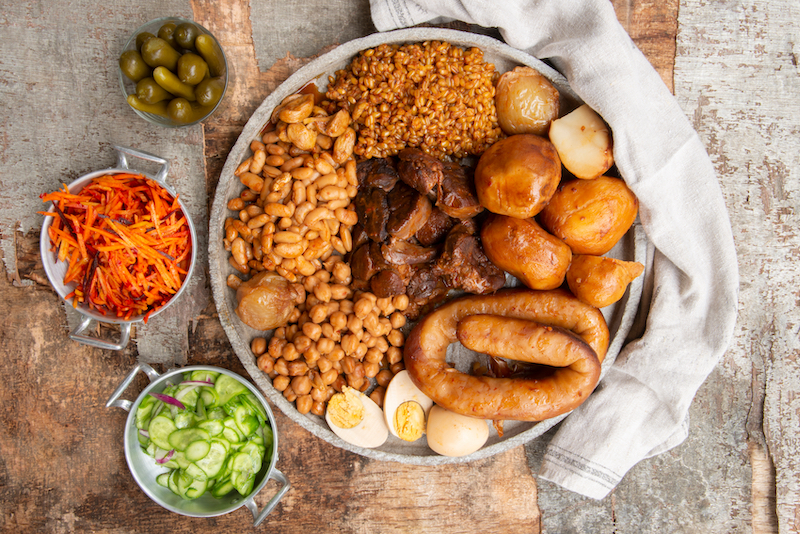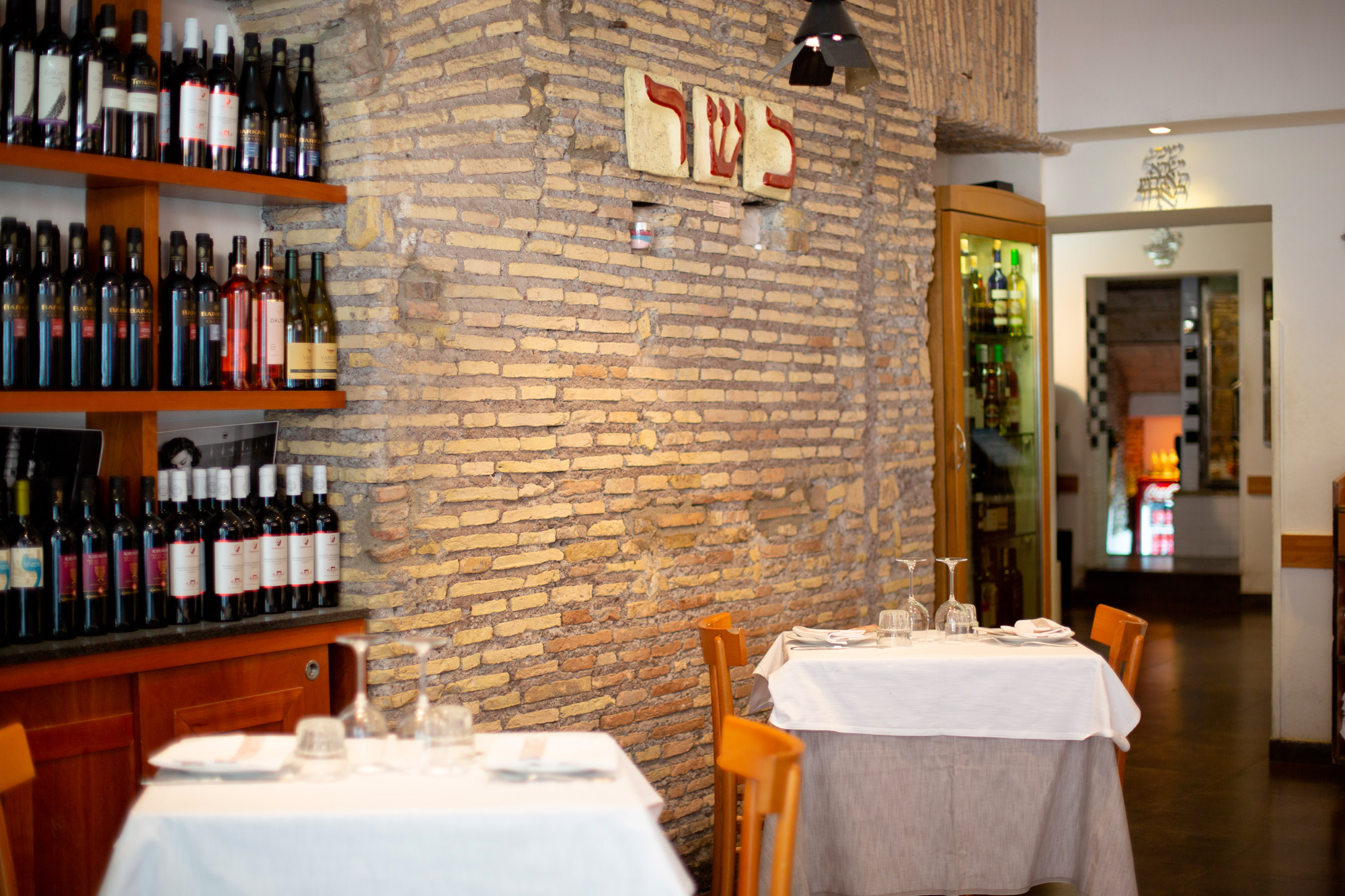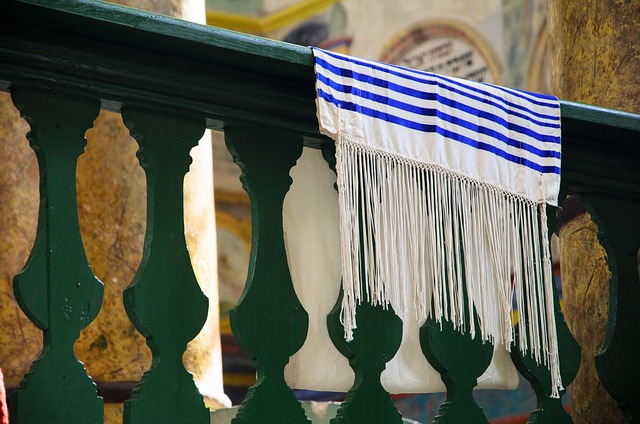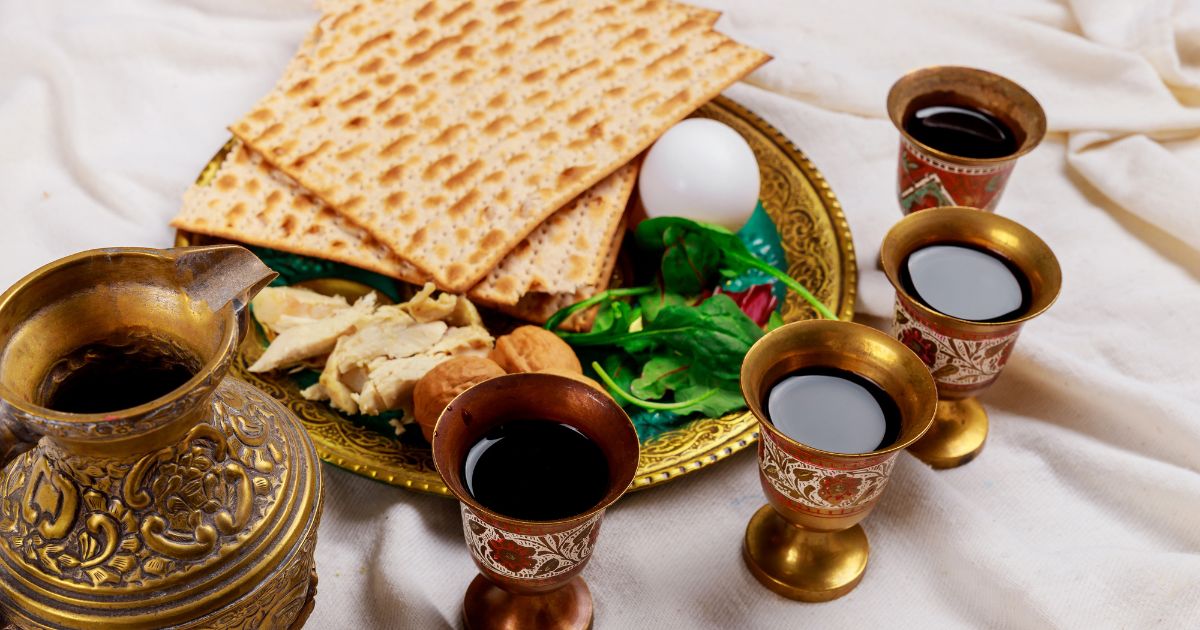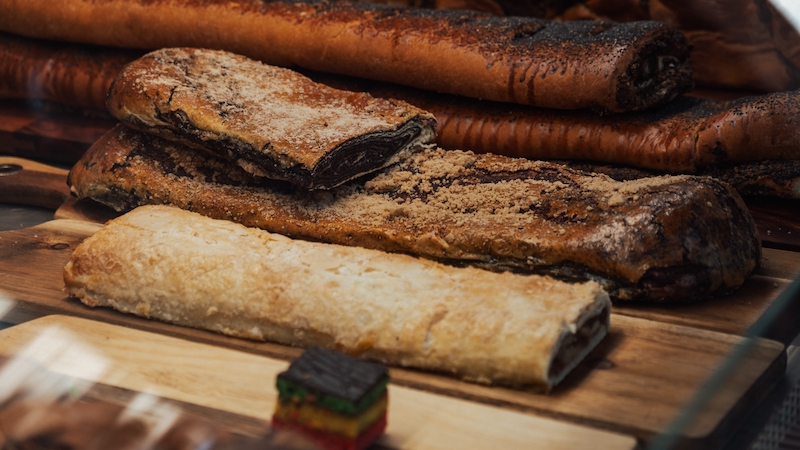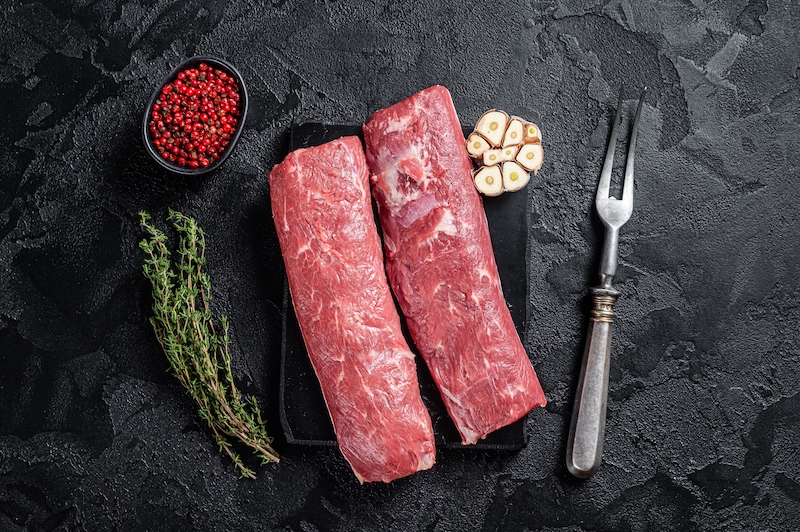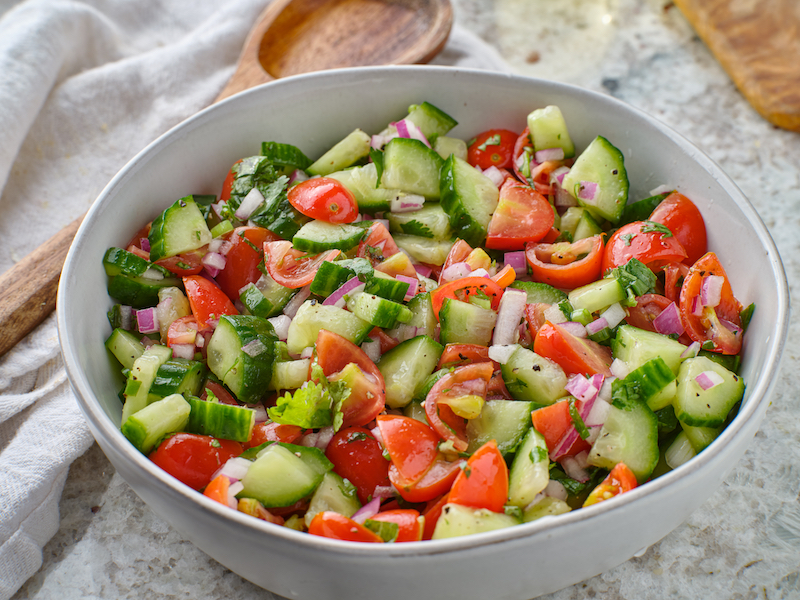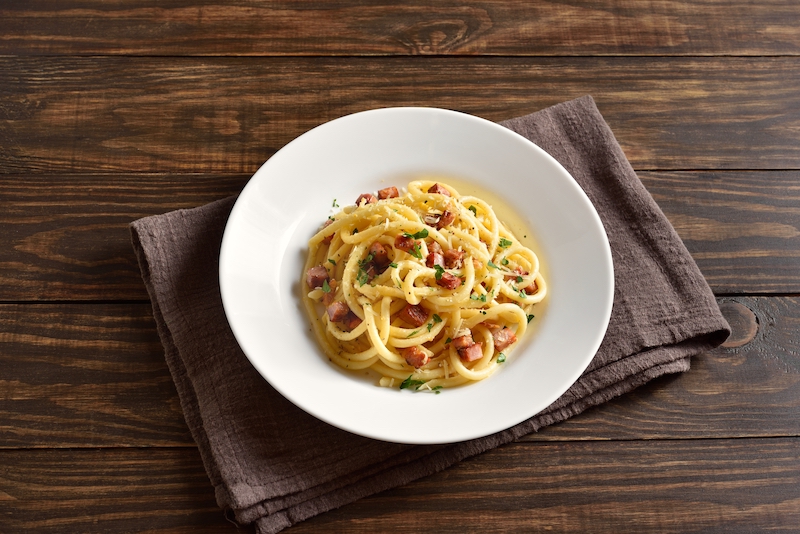What Does Kosher Mean?
“Kosher” is a Hebrew term meaning “fit” or “appropriate.” In the food context, it refers to foods and beverages that comply with the laws of Kashrut, the set of rules of Jewish cuisine. It represents a lifestyle that celebrates pure foods, authentic preparations, and the wisdom of ancient traditions.
The kosher rules cover various aspects, from the criteria for identifying permissible and forbidden animals to eat, to specific methods of ritual slaughter. Moreover, they prohibit the consumption of dairy products together with meat.
Kosher Food and Rules: Why Don’t Jews Eat Meat and Milk Together?
Jews do not eat meat and milk together in adherence to Jewish culinary laws, based on interpretations of the biblical verse, “You shall not seethe a kid in its mother’s milk“. This precept has been interpreted and codified into kosher food, thus forbidding the mixing of meat and dairy products in any form, both in preparation and consumption.
This rule not only physically separates the two types of food but also mandates a time interval between eating meat and dairy products, which can vary from one to several hours depending on community tradition.
The prohibition reflects a deep respect for life and creation, in addition to symbolizing sensitivity and sanctity towards animals and the consumed foods. It also serves to discipline eating habits, calling on the faithful to a higher level of awareness and intentionality in their lifestyle and daily choices.
List of Forbidden Foods in Jewish Cuisine
The list of forbidden (non-kosher) foods according to Kashrut laws includes several categories:
- Non-kosher meat
- Meat from animals that do not chew their cud and do not have cloven hooves (split into two parts), such as pigs, rabbits, and horses.
- Meat from cud-chewing animals with cloven hooves that have not been slaughtered according to Jewish rite (shechita).
- Meat from predators or birds of prey.
- Insects, except for some species of locusts (whose consumption is very rare in modern practice).
- Seafood and certain types of fish
- Jews can only consume fish that have both fins and scales. This excludes all seafood and also octopuses, squids, and fish like sharks.
- Dairy products mixed with meat
- Any food that mixes meat and dairy products, from the moment of preparation to consumption, including products derived or contaminated by mixtures of meat and milk.
- Non-kosher animal fat
- Specific fat from certain animals, known as “chelev,” which cannot be consumed.
- Blood
- The consumption of blood in any form is forbidden, requiring meat to be salted or roasted to remove the blood before consumption.
- Wine or alcoholic beverages not produced by Jews
- Includes all alcoholic products not supervised by a Jew during production.
What are Typical Kosher Meals?
Kosher meals, which adhere to the strict dietary laws of Kashrut, vary greatly depending on regional culinary tradition and personal preferences. However, some dishes are widely recognized as typical of kosher cuisine. Here is a selection of foods that are part of the traditional kosher menu, ranging from appetizers to desserts:
Appetizers
- Gefilte Fish: Ground fish patties or terrines, typically carp, pike, or perch, served cold with fish jelly.
- Challah: A sweet braided bread, served during Shabbat and Jewish holidays.
Soups
- Matzo Ball Soup: Matzah (flour and water) balls served in chicken broth, typical of Ashkenazi cuisine during Passover (Pesach) and other occasions.
- Borscht: A beet soup served cold or hot, often with a dollop of kosher sour cream.
Main Courses
- Brisket: A cut of beef slowly braised, popular during Jewish holidays like Rosh Hashanah, Passover, and Hanukkah.
- Kosher Chicken: Chicken prepared in various ways, but always according to the laws of shechita and without blood. It can be roasted, boiled, or stewed.
- Cholent: A traditional Shabbat stew made with meat, potatoes, beans, and barley, cooked slowly for hours.
Side Dishes
- Kugel: A baked dish that can be sweet or savory, often made with noodles, potatoes, or matzah and various other ingredients.
- Latkes: Grated potato pancakes, typically served during Hanukkah.
Kosher Desserts
- Babka: A yeast-leavened cake filled with chocolate or cinnamon, braided and baked.
- Sufganiyot: Jam-filled fried doughnuts, popular during Hanukkah.
Kosher Food: Celebrating Shabbat
The Shabbat, or Jewish Sabbath, is the weekly day of rest from sunset on Friday until the appearance of the first three stars on Saturday evening. This sacred day is characterized by prayer, rest, and family gatherings, with festive meals playing a central role.
Kosher cuisine, with its rules dictated by Kashrut, is closely intertwined with celebrations, giving rise to culinary traditions that not only respect religious precepts but also enrich the Shabbat experience.
Preparations for Shabbat meals begin well before sunset on Friday, as cooking or lighting a fire is prohibited during Shabbat. Consequently, all foods must be cooked in advance. The kosher cuisine for Shabbat thus includes dishes that can be served cold or reheated in a manner compliant with the laws, without violating the cooking prohibition.
Typical Kosher Foods for Shabbat
During Shabbat, each meal, from Friday evening dinner to late Saturday afternoon, is carefully planned to respect the laws of Kashrut:
- Friday evening: The dinner begins with the blessing of the wine (Kiddush) and follows with the blessing of the challah, the braided bread. The dishes served can vary greatly, but often include soups like matzah ball soup, followed by main dishes like roasted chicken, brisket, or fish, accompanied by various side dishes like kugel or salads.
- Saturday lunch: The Shabbat midday meal often takes advantage of dishes like cholent, a rich stew prepared the day before and left to simmer slowly until Saturday lunch (thus warming up and not cooking). Other options can include salads, fish dishes, and challah bread.
- Seudah Shlishit (third meal): In the late Saturday afternoon, a lighter meal is held, often consisting of salads, fish, and leftovers from previous meals, again accompanied by challah or other breads.
Kosher Cuisine and Slaughter: Jewish Dietary Laws
Jewish dietary laws, known as Kashrut, establish not only which foods are permitted and prohibited but also how these foods must be prepared and consumed. A fundamental aspect of kosher food rules concerns the ritual slaughter of animals, known as “shechita“.
Shechita: the Ritual Slaughter
Shechita is a method of slaughter specifically designed to respect the dignity of animal life, minimizing suffering. To be considered valid, shechita must be performed by a “shochet“, a qualified and trained Jewish butcher in the rules of Kashrut and the technique of slaughter.
First of all, a very sharp knife, free of nicks, called “chalef“, is used. Its blade must be extremely sharp to ensure a quick and clean cut.
The cut, then, must be swift and uninterrupted, to cause almost instant loss of consciousness and reduce the animal’s suffering.
After slaughter, the animal is inspected (bedika) to ensure there are no defects that would render it non-kosher. In particular, the absence of diseases or defects in the lungs and other vital parts is checked.
Finally, the meat must be treated to remove residual blood, generally through salting or roasting, since the consumption of blood is expressly prohibited by the laws of Kashrut.
Kosher Cuisine and Wine: What Can Jews drink?
In the kosher diet, wine can be consumed, but it must also be “kosher”, meaning that it must meet specific guidelines during the production process. Choosing kosher wine means selecting wines that not only comply with the strict laws of Jewish cuisine but also reflect a high quality of production.
To be considered kosher, wine must be produced, processed, and bottled by observant Jews. Moreover, all ingredients used, including yeasts and clarifying agents, must be kosher. Similarly, the equipment used for wine production must not have been used to produce non-kosher wines. There are various categories of kosher wines, including:
- Kosher Wine: Wine produced under strict rabbinical supervision to ensure all stages of production comply with the laws of Kashrut.
- Kosher LeMehadrin Wine: Wine produced according to even stricter standards, following the most stringent interpretations of Jewish dietary laws.
- Kosher for Passover (Pesach) Wine: Wine that, in addition to following the general kosher rules, is also produced without fermentation from grains, yeasts, or enzymes prohibited during the holiday of Pesach.
- Mevushal Wine: Kosher wine that has been pasteurized (heated to a specific temperature) to retain its kosher status even when opened and served by non-Jews. This process is commonly employed in contexts where the wine may be handled by non-Jewish staff, such as in restaurants and at social events, ensuring that the wine remains kosher despite such handling.


